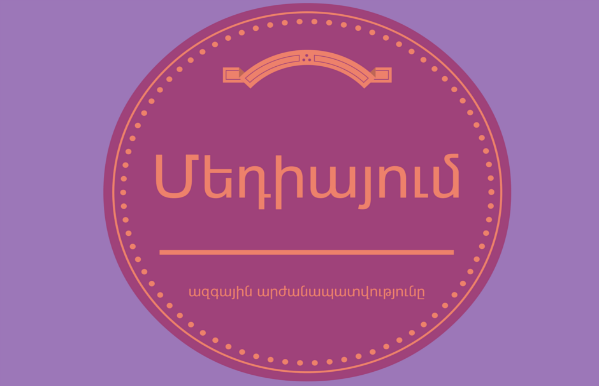The Yerevan-based Region Research Center recently published the results of its”Russia in Armenian Media” study. The research examines reports published on eight Armenian news sites between October 1 and November 2014.
The main conclusion is that “There is [sic] no considerable dynamics in the so-called indexes of aggression and friendliness, and this is true even in comparison with a study we conducted with the same methodology 10 years ago (see Armenia and Azerbaijan on the Crossroad of “neither peace nor war”, Yerevan, 2005, p. 84).”
This seems to testify to the exemplary quality of Armenian media — on the condition that the situation in Armenian-Russian relations has been just as unclouded.
Meanwhile, two very significant events related to Russia preceded the research period.
One occurred on September 3, 2013, when Armenian President Serzh Sargsyan was called to Moscow, where Russian President Vladimir Putin in one night forced him to renounce European integration. This blatant neo-colonial pressure concluded with Armenia’s membership to the Eurasian Economic Union.
The other was Russia’s annexation of Crimea and the war unleashed in the east of this newly independent country. By the way, it’s important to remember the history: According to the 1994 Budapest Memorandum, Russia had previously disarmed Ukraine, taking from it all its nuclear weapons, in “exchange” for which Russia (along with the US and UK) became that country’s guarantor of territorial integrity.
The “Russia in Armenian Media” research study was conducted before the January slaughter of a family in Gyumri, the only suspect of which was Russian soldier Permyakov. Putin expressed his condolences to Armenia almost a week later, while the Russian media’s repudiation of the incident was so cynical that Snob.ru journalist Inna Denisova compared [RU] it to Turkey’s denial of the Armenian Genocide.
The issue is as follows: if the response of the Armenian media (and public) to the September 3 “state abasement” was tantamount, wouldn’t that benefit Putin to be more sensitive to Russia’s ally and not delay his condolences by 7 days?
As I write these words, thousands of Armenian emigrants are standing in line outside the Federal Migration Service office in Moscow, which has to examine 10,000 cases a day in order to meet the demand but still does not serve more than 500 people. That is to say, these poor people for weeks and months have to spend their savings in Moscow before they receive an official work permit… or not. And every moment they think that if they had been Russian citizens, they wouldn’t be in this situation.
But the Armenian media doesn’t cover this humiliation, which is ten times more unacceptable by a member country of the same economic union, and journalists don’t bother Armenia’s Ministry of Foreign Affairs with expressing a position.
As for the events in Ukraine, except for a few exceptions, the Armenian media either unilaterally relies on Russian sources (the majority of Armenian TV stations doesn’t even mute the Russian host’s voice when presenting Ukrainian and, in general, foreign news) or circumvents the topic, probably indirectly implying that, in any case, you can find out everything from Russian channels broadcasting in Armenia.
Meanwhile, a passing acquaintance says that the Russian media unleashed a brutal campaign of aggression toward Ukraine, and the Permaykov precedent suggests the same awaits Armenia as soon as Armenian-Russian relations become strained.
The more independent sector of the Armenian media, the online news media’s neutrality toward Russia most likely will help deny the accusations of the Russian side even in this situation (the “Little Brother Complex” [RU]), but Armenian news outlets ignoring the trampling of national dignity means a lethargic sleep, about which they didn’t say so as not to spoil their mood.
Vahram Martirosyan







